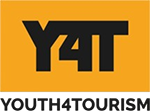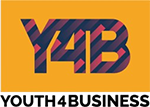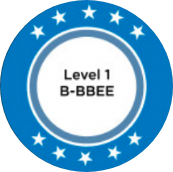The 104+ SMME Support Platform is a dynamic initiative designed to bridge the gap between small, medium, and micro enterprises (SMMEs) and the resources they need to thrive in South Africa’s evolving economy. Powered by collaborative partnerships across the public and private sectors, the platform offers a comprehensive directory of funding, market access, training, and support services tailored to the needs of emerging businesses. By simplifying access to opportunities and enabling more inclusive economic participation, 104+ SMME aims to unlock the full potential of South Africa’s entrepreneurial ecosystem.

https://104smme.co.za/
The UWC Fellows Programme – in partnership with Sanlam for the first time – is a dynamic initiative designed to equip emerging entrepreneurs with the skills and support needed to build resilient, growth-oriented businesses. Run by UWC’s Centre for Entrepreneurship and Innovation (CEI), the programme offers participants NQF Level 5 accredited courses, one-on-one coaching, and mentorship from seasoned business leaders. Through this holistic approach, young entrepreneurs gain critical business acumen, leadership confidence, and long-term sustainability strategies. Sanlam’s involvement has expanded the programme’s impact by introducing post-incubation support, ensuring continued guidance beyond initial training. This partnership underscores a shared commitment to empowering SMMEs as catalysts for inclusive economic growth and lasting prosperity in South Africa.
The Sanlam SANParks Rural SMME Programme – a collaborative initiative between Sanlam and South African National Parks (SANParks) – is a pioneering effort aimed at fostering inclusive economic growth through sustainable tourism and conservation-linked enterprise development. The programme supports local SMMEs operating in and around national parks by providing access to mentorship, funding opportunities, and business training. It explores what’s working, what challenges persist, and how we can drive meaningful transformation by empowering communities to actively participate in South Africa’s nature-based economy.
The YES Youth 4 Tourism Programme – an initiative founded by Sanlam and managed by YES (Youth Employment Service) – is a targeted intervention aimed at accelerating inclusive youth employment within South Africa’s tourism sector. By connecting unemployed youth with work experiences in hospitality, travel, and eco-tourism, the programme helps unlock potential in one of the country’s most vibrant industries. It highlights what is working, where gaps remain, and how strategic partnerships can ignite innovative solutions to ensure young South Africans are meaningfully included in shaping and growing the tourism economy.

https://connect.yes4youth.co.za/youth4tourism
The Youth4Business initiative – the second phase of the transformative partnership between YES and Sanlam – builds on the success of Youth4Tourism by shifting the focus from earning to owning. This innovative programme supports high-potential, youth-owned SMMEs across South Africa, offering seed funding, business mentorship, access to markets, and wraparound support services including financial literacy, compliance, and mental health resources. By enabling youth to transition from gig work into sustainable entrepreneurship, Youth4Business unlocks long-term economic inclusion and strengthens the country’s micro-enterprise ecosystem.

https://youth4business.yes4youth.co.za/











